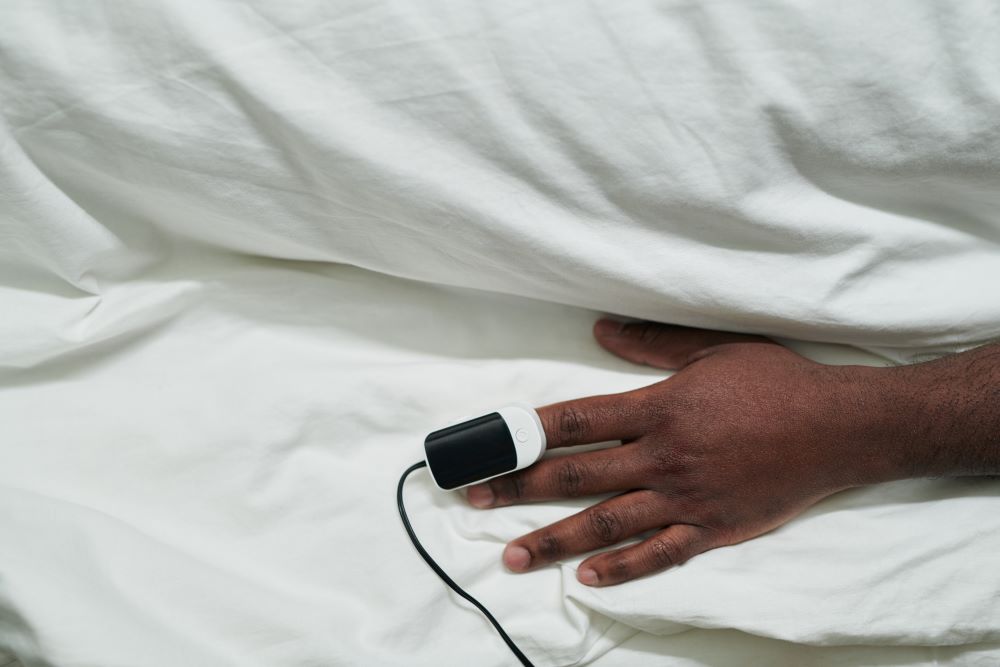-
play_arrow
WURD Radio
Philadelphia considers first US bill to end unlawful medical deportations

By Maurizio Guerrero | Prism
A bill that aims to end the unlawful practice of medical deportations or international patient dumping was introduced to the Philadelphia City Council on Sept. 28. If approved, the ordinance would create the first legal framework in the U.S. to prevent hospitals from deporting non-citizen patients who are ill or critically injured to avoid paying for their long-term medical care.
Introduced by Councilmember Jim Harrity, the bill would create a mandatory protocol for any hospital in Philadelphia trying to repatriate patients to their home country, a legitimate practice when done with the informed consent of the patient but often turned into unlawful medical deportations—when a non-citizen is removed through coerced consent.
“This bill will put an end to the practice of international patient dumping,” said Councilmember Jim Harrity in an emailed statement to Prism. “Patients and their caregivers should have the option to choose or decline medical repatriation and be given support to apply for emergency medical assistance if they choose to seek care in the United States.”
The ordinance would require hospitals to obtain a patient or their proxy’s written consent after explaining the repatriation process in their preferred language. A hospital may not take further steps, the bill states, “if a patient has refused to consent to the repatriation.” Instead, the hospital should ascertain the non-citizen’s eligibility for a program—local, state, or federal—to cover their care and assist them or their caregiver to enroll in it.
The ordinance would also require the hospital to report compliance with the repatriation protocol to the Philadelphia Department of Public Health and to provide an annual repatriation summary to the City Council’s Committee on Public Health and Human Resources. It would also allow patients to sue a hospital for physical, emotional, or economic damages caused by the violation of the protocol.
The ordinance would break ground in the country as advocates, attorneys, and academics have documented that coerced medical deportations are often disguised as voluntary repatriations, even when a lack of protocols makes it impossible to determine if and how patients are informed about their medical care options in the U.S. and their country of origin.
“Being a doctor, you wield a certain amount of power where if you’re wearing a white coat and you tell a patient, ‘This is what’s best for you or your loved one,’ a person who is already scared because they are undocumented or uninsured will usually like agree,” said Adrianna Torres-García, deputy director of the nonprofit Free Migration Project.
Non-citizens, especially those who are undocumented, are often deceived through false promises of medical coverage in their countries of origin to agree to their deportation, according to a 2021 report by the Free Migration Project.
Hospitals have also attempted to remove non-citizen patients even when they could access programs to pay for their medical care. In December 2022, a 46-year-old Dominican woman was scheduled for removal by a hospital in Allentown, Pennsylvania, despite being in a coma. She now receives long-term care in the U.S. In Pennsylvania, Emergency Medical Assistance is available for a specific medical emergency for a limited time to immigrant patients regardless of their immigration status. The ordinance would require Philadelphia hospitals to explore this kind of assistance.
Complying with this requirement could be the difference between life and death for non-citizens. Immigrant patients often die due to the poor medical care in their countries of origin after being deported. Hospitals and medical transport companies are “basically sending people to their deaths,” said Torres-García. Deported patients, she added, “either get worse because they don’t have the appropriate treatment or die en route or when they get there.”
No accountability for hospitals
Very little data exists about medical deportations or international patient dumping despite the severe consequences for patients and their families. Advocates, academics, and attorneys estimate that hundreds of immigrant patients may be coerced into medical deportations each year in the U.S. even though the practice constitutes a violation of federal law as immigration enforcement is the sole responsibility of the Department of Homeland Security and its related agencies.
Coerced deportations also violate human rights obligations under a variety of treaties that the U.S. has signed or ratified, according to a report of the Center for Social Justice at Seton Hall Law School and the Health Justice Program at New York Lawyers for the Public Interest. The 2012 report urged the Department of Health and Human Services to “immediately promulgate regulations” to impose sanctions to hospitals that perform “an involuntary repatriation.” Since then, the federal government has not taken any action.
Patient dumping in the U.S. is penalized by the Emergency Medical Treatment and Labor Act, which mandates hospitals to have a discharge plan and to assist patients or their proxies in selecting long-term acute care clinicians. After this law was approved in 1986, patients have successfully sued hospitals after being unlawfully discharged. For example, in the fall of 2022, two Kentucky hospitals were forced each to pay $2.4 million as compensation after they discharged patients because they either could not pay for care or had reached the limits of their insurance coverage.
However, no case has been documented of a non-citizen successfully suing a hospital after being unlawfully deported, according to David Bennion, the executive director of the Free Migration Project.
“It’s the Wild West when it comes to medical deportation,” he said. “It’s extremely challenging for somebody to sue after they’ve been deported or even beforehand. It’s an uphill battle to navigate the civil legal system for people in a medical emergency situation or their family members.”
The Philadelphia ordinance, he added, would create a framework around which unlawfully deported patients could sue hospitals. The legislative process is just starting, as the bill has to be assigned to a City Council committee to discuss and schedule a public hearing on it.
“We’re hopeful that if we can get this ordinance passed and implemented , other organizations in other locations will be motivated to replicate it,” Torres-García said. “We certainly believe that health care is a human right for everybody.”
Prism is an independent and nonprofit newsroom led by journalists of color. We report from the ground up and at the intersections of injustice.
THE WURD WEEKLY NEWSLETTER
Black Talk Media sent straight to your inbox.
BECOME A MEMBER
The forWURD Movement is your way to
protect and preserve Independent Black Media.
Written by: Associated Contributor
deportation doctors health hospitals Maurizio Guerrero medical medical deportations pennsylvania philadelphia Philadelphia Department of Public Health philly Prism
Similar posts
Featured post
Latest posts

This Week on WURD: Media accountability in politics, the holiday stress on mothers, environmental justice in Chester, and the legacies of Jimmy Jam and Laiya St. Clair

This week on WURD: The fight over Warner Bros., equitable access to AI tools, the toll of mass incarceration

This week on WURD: $5 million URL Media grant, tensions in Venezuela, Black farmers and the government shutdown

This Week on WURD: ICE and immigration, “The Coroner’s Silence,” abortion as a human right

This Week on WURD: Grammy and Tony Award winner Heather Headley, DA Larry Krasner on crime in Philadelphia, Philadelphia’s porch pirate issue
Current show
Upcoming shows

Wake Up With WURD
7:00 am - 10:00 am

The Midday Break Room
10:00 am - 1:00 pm

Keepin’ It Real with Rev. Al Sharpton
1:00 pm - 4:00 pm

Evening WURDs
4:00 pm - 7:00 pm

The Tavis Smiley Show
7:00 pm - 10:00 pm
WURD Radio LLC © 2012-2021. All rights reserved.






Post comments (0)